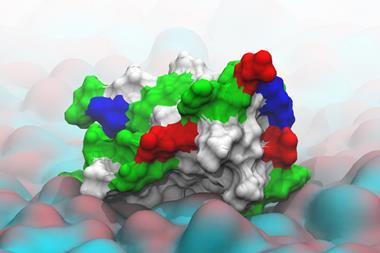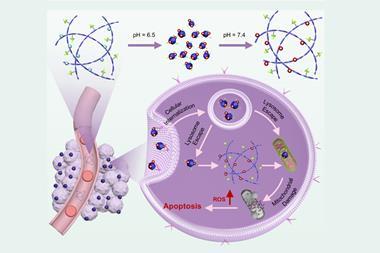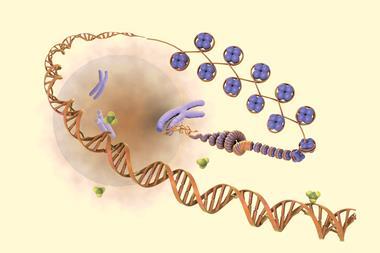A novel targeted drug delivery system could help improve the efficacy of medicines for inflammatory bowel disease (IBD) by ensuring they are released directly to the affected area of the gut.
Medicines such as corticosteroids are generally administered orally or intravenously for conditions like IBD, but this often leads to rapid uptake in the stomach and upper intestine and targeted delivery to the lower intestine remains a long-standing challenge. Higher doses are prescribed to ensure enough of the drug reaches the affected area, however, this brings with it an increased risk of serious side effects such as high blood pressure and osteoporosis.

Inspired by insights into how fibre from fruit and vegetables is digested by microbes in the human gut, the researchers designed a strategy they called GlycoCaging. Based on glycoconjugates of an oligosaccharide derived from plants, the GlycoCage was designed so that the drug would only be released upon contact with specific enzymes produced by gut microbiota.
The researchers tested the approach using the glucocorticoid dexamethasone – a GlycoCaged version and a non-caged version – in mice with IBD for between four to nine weeks
The doses of dexamethasone that were GlycoCaged were three- to 10-fold lower than the free dexamethasone doses, but the anti-inflammatory effects were found to be the same.
In addition, they found there was reduced systemic circulation and targeted delivery of dexamethasone in mice on oral administration of the GlycoCaged drug, compared with the free dexamethasone. They also saw that serum and tissue concentrations of dexamethasone spiked in mice given the free drug, indicating rapid uptake, but the GlycoCaged drug resulted in no spike, indicating that absorption in the upper GI tract had been prevented.
To test the potential in humans, the research team analysed faecal samples from 33 people, both with and without IBD, as well as a global database for genetic markers, and found that everyone had the microbiota to activate the drugs and the majority had genetic markers indicating the ability to break down the GlycoCage system.
‘GlycoCaging may offer a route to rescue promising drug candidates that currently show unacceptable systemic toxicity,’ the researchers concluded.
References
W J Ma et al, Science, 2025, DOI: 10.1126/science.adk7633

















No comments yet